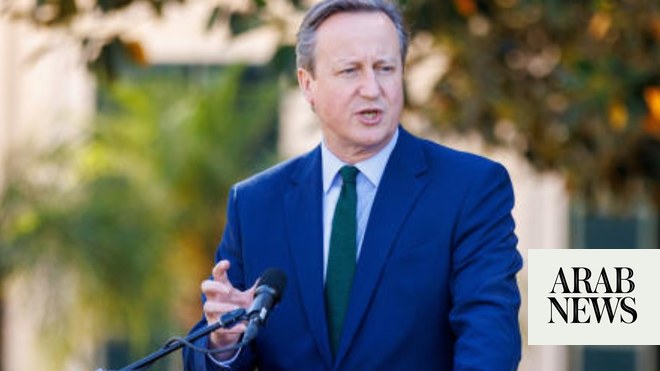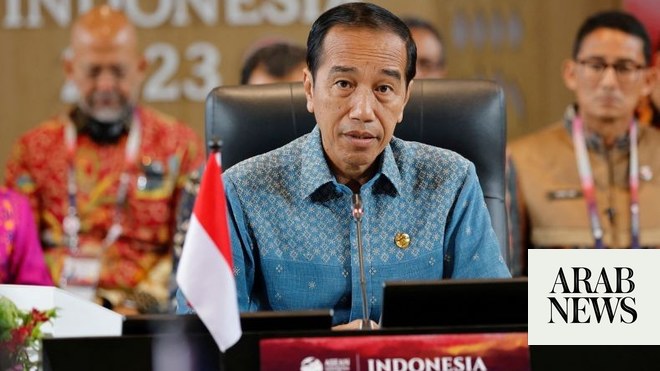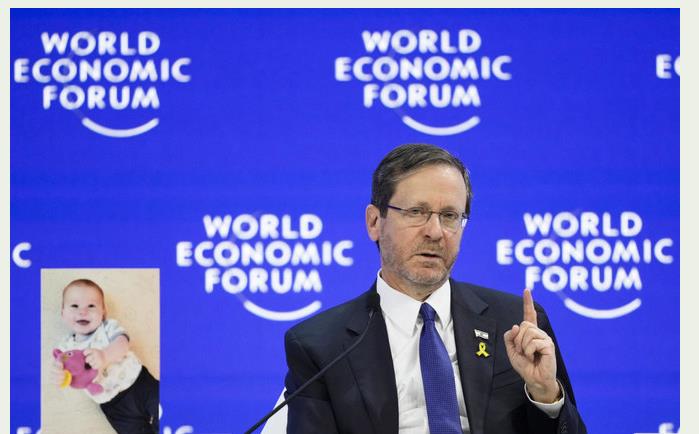
The shadow UK foreign secretary, David Lammy, has urged David Cameron to publish the Foreign Office formal legal advice on whether Israel is breaching international humanitarian law in Gaza.
Lammy’s move comes as two human rights groups have been given permission for an oral hearing to seek a judicial review of the government’s refusal to ban arms exports to Israel.
“Given the gravity of the situation in Gaza, the degree of public and parliamentary interest and the risks to the credibility of the UK’s export controls regime, there is a compelling case to publish the government’s legal advice,” Lammy wrote in a letter to Lord Cameron, the foreign secretary.
Arms export licences should not be granted if “there is a clear risk that the items might be used to commit or facilitate a serious violation of international humanitarian law”, the letter said.
“Israel remains publicly committed to a military offensive against Rafah despite the widespread concerns expressed by the international community about the catastrophic humanitarian risks this entails. This week, a UN-backed report revealed that a man-made famine in Gaza is imminent and that more than a million people will face catastrophic levels of hunger, despite food being piled up in trucks just a few kilometres away. It is essential that the [arms export] criteria are applied rigorously to Israel as to any other country.”
By precedent, UK government legal advice is not published, but Labour feels it is not possible to have an informed debate on Gaza without full access to the advice rather than fragmentary responses in oral answers.
The Foreign Office minister Andrew Mitchell said this week Israeli compliance with international humanitarian law (IHL) was kept under review, but the issues involved were “complex”.
Two legal groups – Global Legal Action Network (GLAN) and Al-Haq, a Palestinian human rights group – are separately preparing for an oral hearing to ask permission for a judicial review of the government’s refusal to ban arms exports to Israel to proceed.
The oral hearing, expected in weeks, has been granted after a written request for permission was rejected last month by Mr Justice Eyre.
On 12 December, the trade secretary, Kemi Badenoch, acting on Foreign Office advice, decided “there is not at present a clear risk that items exported to the Israel Defense Forces might be used to commit a serious violation of IHL”.
Since then, the NGOs and Lammy point out, the death toll has nearly doubled and allegations of Israeli breaches of IHL have mounted.
Mitchell told MPs this week “everyone agrees that people are starving in Gaza”, but refused to say Israel was in breach of international law, saying there were “very serious doubts” about the term “deliberate starvation” in this context.
In the past Ministers have also pointed to Israel’s right to self-defence, the placement of legal advisers inside the IDF and the government’s belief that Israel has the commitment and the capability to comply with IHL.
The papers extracted from the Foreign Office after GLAN’s written request for judicial review reveal an internal process that the group’s lawyers view as rigged and extremely limited.
An internal Foreign Office memo written on 10 November says “without accurate information on real-time IDF decision-making we have been unable to make a case by case assessment on Israel’s compliance with IHL for specific strikes or ground operations during the current conflict in Gaza”.
The department also rejected evidence of specific war crimes assembled by Amnesty International, including attacks on hospitals and schools, saying the UK could not know why Israel acted as it did in an individual strike. GLAN says this reasoning means so long as a theoretical justification exists for an airstrike, Israel has be presumed to be acting lawfully
GLAN pointed out the Foreign Office recommendation to keep selling arms was made only after it sought generalised assurances from the Israeli embassy about its intentions to comply with IHL. The embassy did not respond to Foreign Office concerns about six specific incidents, saying it could not do so since they were subject of internal inquiries.
The Foreign Office also assessed “there was no evidence that Israel’s military operations were intended to cause starvation”.
Charlotte Andrews-Briscoe, a lawyer with GLAN, said: “When assessing whether Israel intended to starve Gazan civilians the UK ought to look at the statements of Israeli officials who stated they would do just that. But the intent of individual Israeli commanders is not the legal test, and the government knows this.
“Speaking about intent in the context of international humanitarian law is quite misleading. If a state fails to distinguish military and civilian objects, or to take reasonable precautions or to make a proper proportionality assessment, that amounts to a violation and it’s immaterial whether or not they intended to cause such harm. This is a text book case of the war crime of starvation of individuals as a method of warfare.”
Ahmed Abofoul, a legal officer at Al-Haq, who lived in Gaza for 25 years, said: “The level of destruction removes any doubt around proportionality. Destroying 70% of Gaza’s residential units does not indicate any distinguishable targeting. The IDF spokesperson at the beginning of this genocide said the emphasis is on damage, not accuracy. What else does the British government need to understand that this is not about legitimate targets or distinguishing between civilians and Hamas? This is about making Gaza uninhabitable, and forcing civilians to leave their homes.”
He added: “History will not be kind to the UK government’s position because it’s not only a distorted interpretation of IHL that is causing massive loss of life, it’s also destroying the very notion of international law that has, to a certain extent, provided somewhat stability in the world.”
In seeking permission for a judicial review, GLAN and Al-Haq are compelled to fight on relatively narrow legal ground of whether the government in reaching its decision has acted irrationally.
In his brief five-page ruling in February, Eyre rejected the review on the grounds that ministers said they were regularly considering the issue, and that in reaching their view they had not solely relied on Israeli assurances of its intent to comply with international law.












